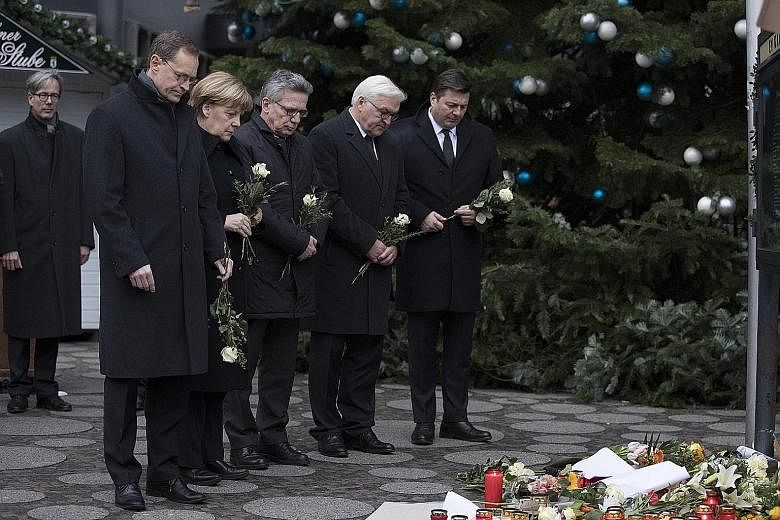BERLIN • The claim on the ISIS' Amaq media channel was short and distressingly familiar: A "soldier of the Islamic State" was behind yet another attack on civilians in Europe, this time at a festive Christmas market in Berlin.
The accuracy of the claim remained in question as the German authorities searched for both a suspect and a motive.
But it appeared that the attack had already achieved one of the stated objectives of terrorist group Islamic State in Iraq and Syria (ISIS): Spreading fear and chaos in a Western country in the hope of sharpening the divide between Muslims and everyone else.
Terrorism experts have likened the ISIS claim to a declaration of all-out war against a country that until now had seen little of the terrorist violence that has rocked its Francophone neighbours.
Germany, with its large Muslim community and recent history of political discord over Muslim immigration, has long been viewed by the militant group as an important strategic target, despite the country's reputation for tolerance.
ISIS officials have in recent months urged supporters to launch attacks in Germany with the aim of creating an anti-Muslim backlash in Europe's biggest democracy.
The resulting crackdown would benefit ISIS, the group argues, by dividing Europeans and driving wavering Muslims into the militants' corner.
"The very fact that Germany has played only a minor role in anti-ISIS efforts - but is the most important state in Western Europe - may make it a good place to sow division within the Western alliance," said former CIA counterterrorism official Paul Pillar, a senior fellow at Georgetown University's Centre for Security Studies.
Some counterterrorism experts treated the claim that it was a "soldier of the Islamic State" with scepticism, noting the lack of authenticating detail as well as the Berlin truck driver's behaviour during and after the attack.
Unlike previous incidents in which the perpetrators seemed to have expected death or "martyrdom", the driver fled the vehicle.
"The easiest thing to say is, 'It is ISIS', but if you are conducting an investigation, you have to ask all sorts of questions and explore all sorts of possibilities," said Mr Ali Soufan, a former FBI supervisory special agent who investigated terror cases.
Mr Lorenzo Vidino, director of the programme on extremism at George Washington University, said the driver's behaviour suggested that the attack might have been inspired by extremist ideology but was not connected operationally with ISIS.
The choice of Germany might have simply been a matter of opportunity or - if ISIS was truly involved - a strike against a strategically important target.
WASHINGTON POST

